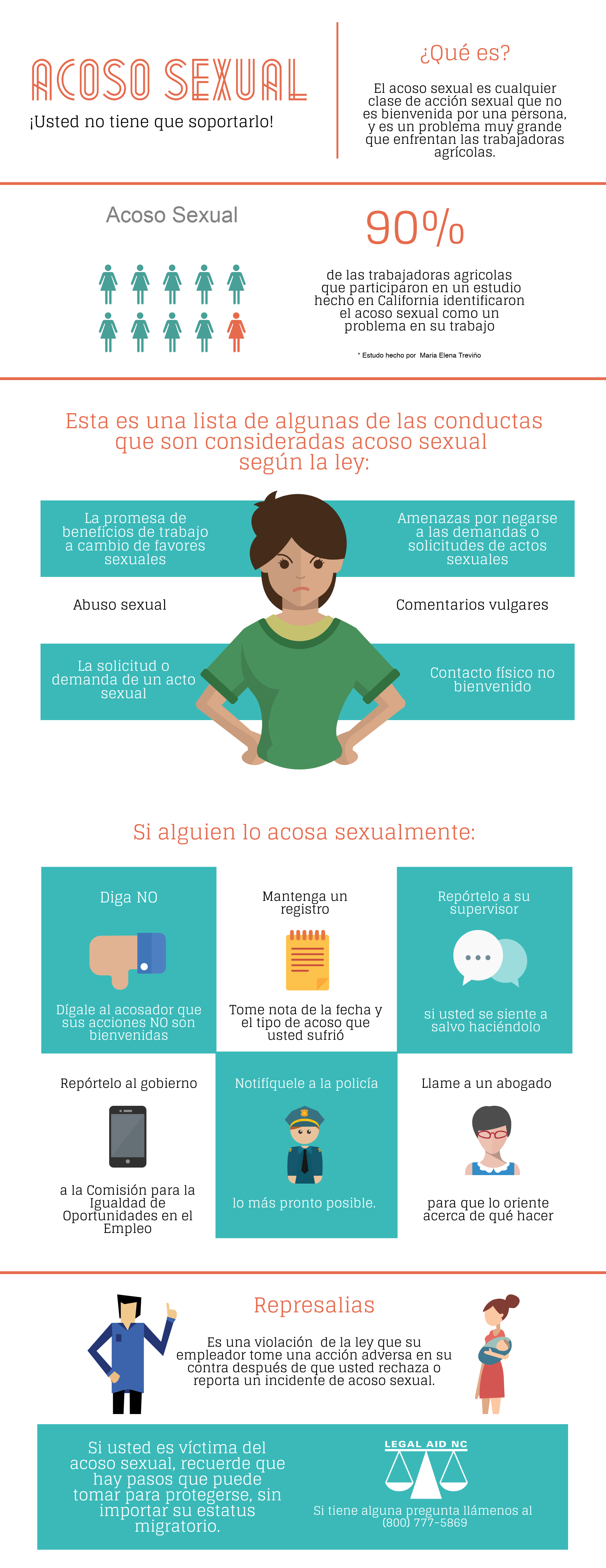
The often hashtagged phrase “me too” has recently gone viral on social media to show the prevalence of sexual assault and harassment in the workplace and how much it is ingrained in our society. Though the voices of Hollywood actresses have sparked an overdue conversation about this widespread act of injustice in their workplace, what about the stories of those who remain silenced? It is important to take into consideration the plight of economically disadvantaged women who must continue to suffer in silence exposed on a daily basis to these vile behaviors in their workplaces. They are the most vulnerable to these abuses.
At the Golden Globe Awards, Oprah spoke about an open letter written by the Alianza Nacional de Campesinas, or, in English, the National Alliance of Female Farmworkers, on behalf of 700,000 female farmworkers. The letter expressed the Alliance’s gratitude towards these powerful women who spoke out to put an end to widespread abusive practices that silenced scores of victims for so many years. The women of the Alliance stated that they felt as though they did not enjoy the same privilege as these public figures do in speaking out. Their reports are not shared at glamorous award shows celebrated by the applause of a supportive audience, but they are met with the endless fear of threats, shame, inability to provide for their families, and other forms of retaliation. Farmworker women are usually the primary caregivers for their families, and for that very reason alone, they can be reluctant to take legal action against their aggressors.
The women of the Alliance are not alone. 90% of female farmworkers that participated in a California study identified sexual harassment as a problem in their workplace. Being that women make up 22% of the agricultural workforce, the rate is alarming. According to reports from the National Farmworker Ministry, females in the fields are often given the lowest-paying jobs, are the first to be laid off, receive fewer opportunities to advance, and face a culture of discrimination and machismo [male chauvinism] on top of being more likely to face sexual harassment in their workplace. Why isn’t training in the fields and in other industries making a difference?
A report last year by the Equal Employment Opportunity Commission found that when someone is sexually harassed at work, the most common response was to avoid the harasser or ignore the behavior. The report stated that sexual harassment training typically does not place an emphasis on prevention or the protection of employees, but training was focused on helping industry avoid legal liability. Because of the many barriers to reporting that farmworker women face in particular, it is of the utmost importance to educate the farmworker community of the dangers of sexual harassment, what it looks like, how they can speak out against it, and what legal protections they have.
These are some of the behaviors that by law are often considered acts of sexual harassment:
-Promising employment benefits in exchange for sexual favors;
-Threats as a result of declining sexual advances;
-Sexual abuse;
-Vulgar comments;
-Soliciting or demanding any sort of sexual act; and
-Unwelcome physical contact of any sort.
It is important for the farmworker community to understand that they are in their right to decline any type of sexual advances. They should record the times and dates where these incidents have taken place, report these acts to a supervisor, the police, or a legal service provider of their choice. It is a blatant violation of the law for an employer to take adverse action against the victim because the individual reports the act.
Working in a safe environment is a right regardless one’s gender or immigration status. It is our duty as humans to swiftly act upon reports of sexual harassment made by those who so often do not feel at liberty to speak out and to dismantle the systematic barriers that keep others silent.
Should you become aware of any case of sexual harassment, please report and refer to our office by calling 919-856-2180.
 Valery Arevalo is a Paralegal at the Farmworker Unit of Legal Aid of North Carolina.
Valery Arevalo is a Paralegal at the Farmworker Unit of Legal Aid of North Carolina.
* This post was originally written for the Farmworker Advocacy Network blog.
